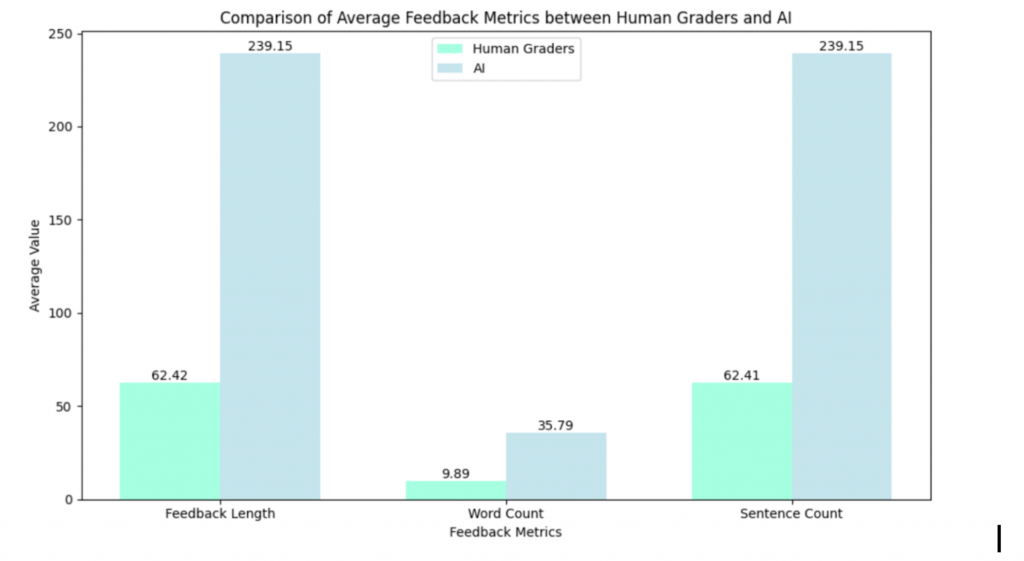Since December, Thinking Nation has embarked on an exciting journey of integrating Artificial Intelligence (AI) into our platform for grading essays. This initiative represents a significant step forward in our mission to transform social studies education by providing detailed, instant feedback to students. For more on AI’s role in the mission, check out this EdSurge Podcast with our executive director. This week, we delve into the story behind the process of developing, implementing, and refining our AI integration.
Developing, Training, and Integrating Our AI System
The journey began with the intricate task of building the AI algorithm. Our team of engineers and data scientists worked tirelessly to develop a robust infrastructure capable of assessing complex writing tasks. This involved extensive coding and system design to ensure the AI could accurately evaluate essays based on our rubric standards.
Training the AI with past data was a critical phase in the process. We fed the system thousands of previously graded essays, allowing it to learn from a wide spectrum of writing styles and proficiency levels. This training enabled the AI to recognize various writing patterns and understand and apply the rubrics and argumentation criteria.
Once the AI was adequately trained, we moved on to rigorous testing. This phase involved running numerous simulations to evaluate the AI’s performance and accuracy. We made iterative adjustments based on the results, fine-tuning the algorithm to enhance its reliability. This extensive testing was essential to ensure that the feedback provided by the AI was both precise and meaningful.
After the AI demonstrated consistent and accurate performance, we integrated it into our platform through an API. This integration was designed to be seamless, allowing the AI to interact efficiently with our existing systems. The API ensures that once a student submits their essay, the AI can instantly grade it and provide detailed feedback within seconds.
Even after integration, the work didn’t stop. Continuous fine-tuning is essential to maintain and improve the AI’s performance. Our human graders play a crucial role in this process. They review the AI’s feedback to ensure it aligns with our rubric standards and to identify any potential biases and inaccuracies. This ongoing moderation helps refine the algorithm, ensuring that the AI’s assessments remain accurate and unbiased over time.
Survey Results and Case Study Insights
To evaluate the effectiveness of our AI integration, we conducted surveys and case studies. The results highlighted several key benefits of our AI-powered feedback system:
- Understanding the Rubric: 68% of students reported a better understanding of the rubric due to the detailed feedback provided by AI.
- Enhancement of Literacy Skills: 70% of students observed significant improvements in their writing skills, attributing this growth to the precise and actionable feedback from AI.
- Accuracy of Feedback: AI grading proved to be 77% more accurate than human grading. This increased accuracy is largely due to the elimination of human biases and the consistent application of standardized rubrics across all essays, leading to fairer and more objective assessments.
- Comprehensive Feedback: The detailed feedback provided by AI, allows for longer explanations and deeper analyses. This demonstrates promise for enhancing students’ understanding of assignments, offering clearer insights into strengths and areas for improvement.

These findings underscore the transformative impact of integrating AI on student learning and teacher effectiveness (full report here). The instant and detailed feedback provided by AI empowers students to reflect on and improve their writing skills in real-time. This not only enhances their understanding of historical thinking but also boosts their overall academic performance. After all, we want to ensure that we use AI for human flourishing.
As we continue to improve our AI system, we look forward to sharing more updates on this exciting journey and the positive impact it will have on social studies education.